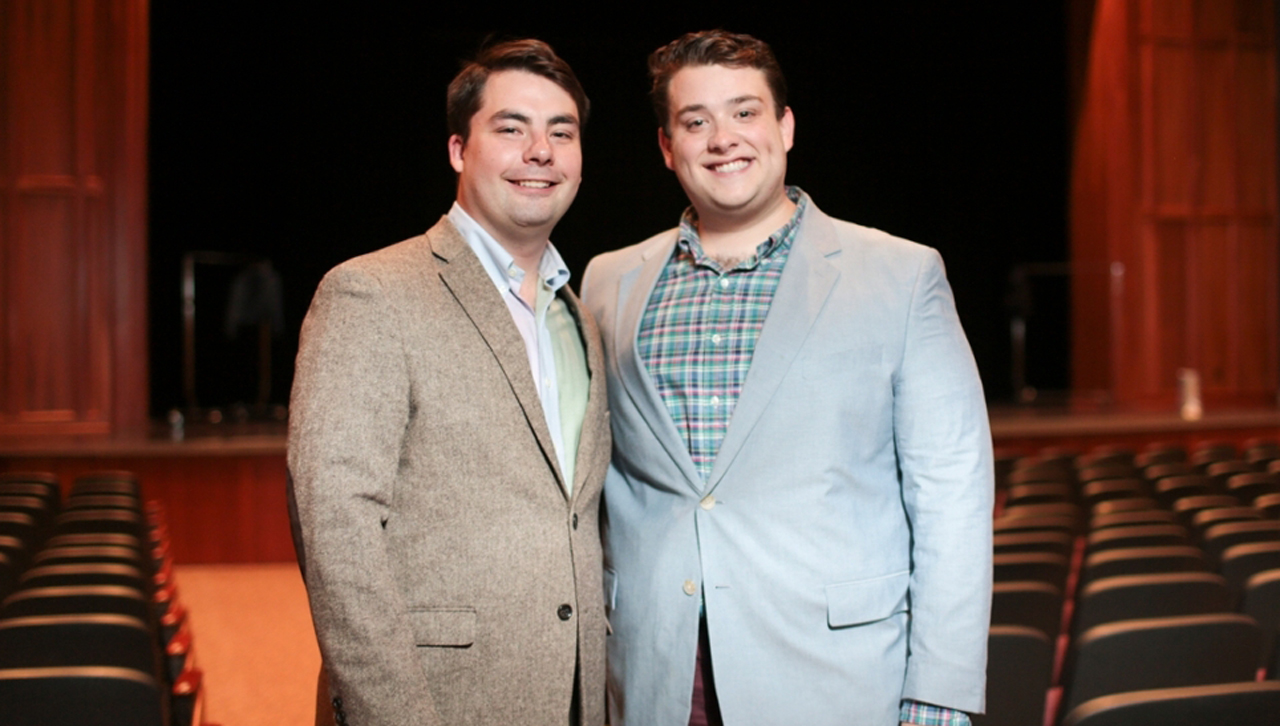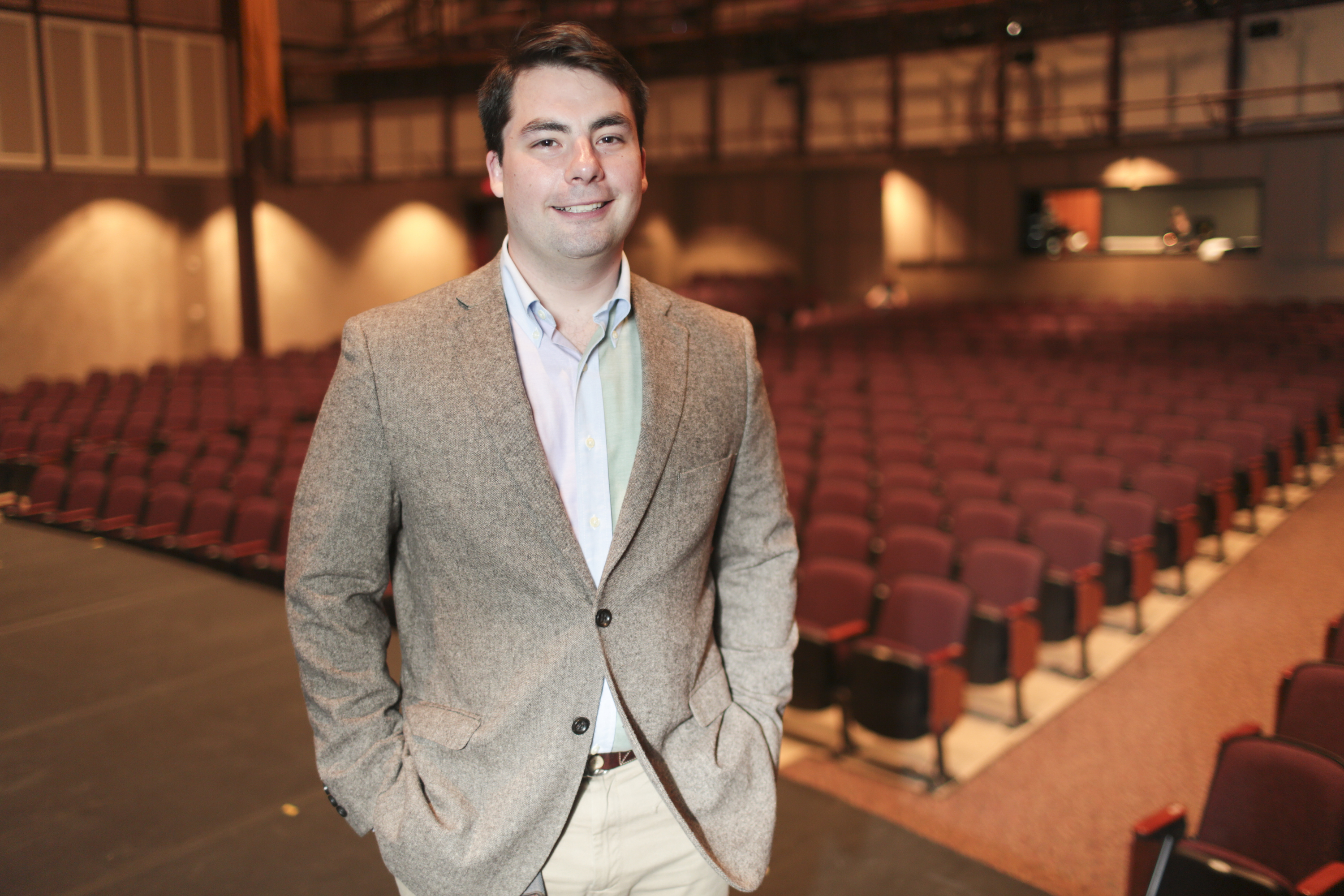Jesuit Tradition of Support for the Arts Lives on

University, Scranton Prep partnership for Scranton Shakespeare Festival exemplifies centuries-old Jesuit tradition of support for the arts
Jesuit education has deep, entrenched roots tied closely to the humanistic revival of the Renaissance, which includes the influence William Shakespeare, who expertly used the English language in plays to convey the intensities of human emotions and to deepen the understanding of human nature.
It’s little wonder, then, that the Society of Jesus has such a robust connection to support of the arts – and to Shakespeare.
In fact, some modern-day scholars argue that Shakespeare’s language contains strong Jesuit messages. An article published in 2014 in The Catholic Herald referred to Shakespeare as “a man of Catholic tastes.” Writing for the publication out of the United Kingdom, Clare Asquith describes his “distinctively complex, multilayered blueprint” for the 16th-century play and proffers the possibility that this blueprint was conceived “not by Shakespeare himself … but by the acknowledged educators of Europe – the Jesuits.”
“Central to the revolutionary Jesuit system of education was drama,” she wrote, “and that drama had certain qualities,” among those “a high moral purpose.”
Asquith continued, “The Jesuit mission was not simply to entertain. It was to instill a ‘world-friendly spirituality’ into ordinary people as well as emperors, in pursuit of the common good and a better society.”
Fast-forward five centuries, and on modern stages everywhere, including in the Electric City, you’ll find history repeating itself as Jesuit educators continue to applaud and support the transformative quality of Shakespearean theater.
One case in point is the Scranton Shakespeare Festival, of which The University of Scranton has been a sponsor since its inception six years ago by its alumnus Michael Flynn, who now serves as artistic director for the festival. The University provided campus space for rehearsals and performances, as well as housing for the troupe that brings this high-quality, free theater to Scranton each summer.
This year, the University teamed up with fellow Jesuit institution Scranton Preparatory School to continue its support for the festival.
Colin Holmes, director of drama and musical theater at Scranton Prep and venue liaison for the festival this year, described the arrangement as the perfect partnership and a winning arrangement for all involved.
The University, he said, graciously agreed to house the actors in upperclassmen apartments, and Scranton Prep, meanwhile, offered rehearsal space and hosted performances of two plays in its Bellarmine Theater. It also assisted in staging a performance at Scranton’s PNC Field.
“The mission of the Shakespeare Festival is to provide free theater for the community. It’s natural for Prep and the University to open their doors to this,” said Holmes, a 2009 graduate of Scranton Prep and 2013 graduate of the University. “It just makes sense. The missions very much align.”
Holmes noted that the festival is a 501(c)(3) nonprofit organization and relies on loyal support of community and institutional benefactors to offer the gift of professional performances to the community.
Holmes also noted the partnership provides opportunities to theater students.
He said that several students, many of whom wish to write or direct, made meaningful connections with actors and had the chance to assist the directors.
Holmes and Flynn, who is also a graduate of Scranton Prep, are looking forward to continuing the partnership with their alma maters – and the continuation of the centuries old tradition of Jesuit support of the arts.
Cast members rehearse a scene from Scranton Shakespeare Festival’s performance of “Measure for Measure” on the stage of the Bellarmine Theater at Scranton Prep. In support of this year’s festival, the University provided housing to the actors and Scranton Prep provided rehearsal space and hosted performances of two plays. The University has been a sponsor of the festival since its inception, providing housing to cast members and campus space for rehearsals and performances.
Michael Flynn, a 2010 graduate of the University and a 2006 graduate of Scranton Prep, founded the Scranton Shakespeare Festival six years ago. He now serves as artistic director for the festival.







